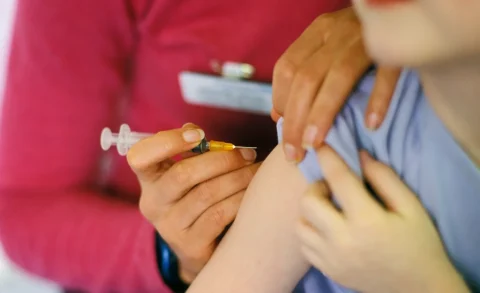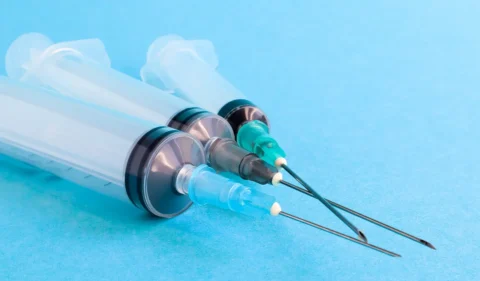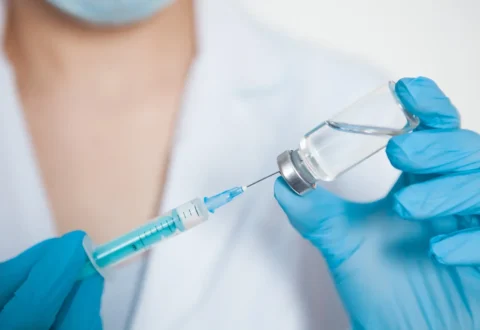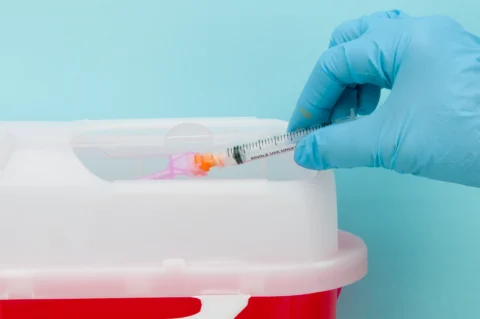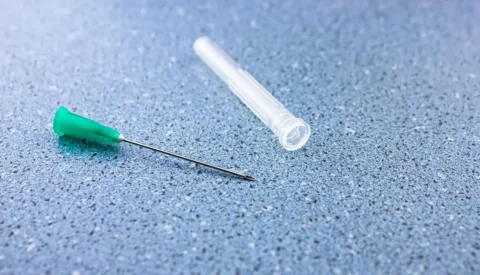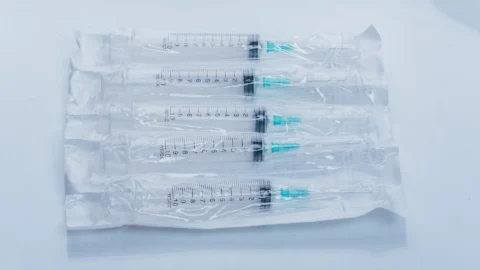Dangers and Risks of Attempting to Make a Hypodermic Needle at Home
As the thought has crossed your mind, I know you’re curious to figure out how to make your own hypodermic needle at home. After all, it seems like such a simple process – just heat and stretch some glass tubing into a fine point, right?
While it may be an intriguing DIY project, attempting to make hypodermic needles at home is extremely dangerous and unethical. There are significant health and legal risks involved that you do not want to take. Here’s why making hypodermic needles at home is not recommended.
Understanding Hypodermic Needles and Their Purpose
As the name suggests, hypodermic needles are designed to penetrate the skin and reach under the dermis, or second layer of skin. They serve a critical purpose in medicine by providing a conduit to deliver medications, withdrawal bodily fluids for testing, or inject substances precisely where they are needed.
While hypodermic needles seem simple, they are actually highly engineered medical devices created under very controlled conditions. Professional manufacturers monitor every stage of production to ensure needles meet strict standards for size, shape, material, and sterility. A single improperly made needle could put patients at serious risk of infection, injury, or even death.
Attempting to make needles at home completely bypasses this carefully monitored and regulated process. You would be creating needles with no oversight on quality, safety, or sterility. Even with the best of intentions and most meticulous efforts, there is still a high probability of producing needles that could cause harm. It just isn’t worth the risk to your health or the health of anyone who might receive an injection from one of your homemade needles.
Professional hypodermic needles are designed for a purpose and work incredibly well for what they were engineered to do – save lives and improve health. Please leave needle making to the experts and medical professionals. Your DIY approach could only lead to trouble.
The Perils of DIY Hypodermic Needles
When you make your hypodermic needles at home, the perils of doing so become glaringly apparent. Your DIY approach opens the door to a host of health and safety risks that could seriously endanger you and anyone receiving an injection from your needles.
To start, the equipment and needles won’t be properly sterilized using medical-grade disinfectants. Any contaminants, bacteria, or viruses present could easily infect the skin or enter the bloodstream. This could lead to dangerous infections, diseases, or even death.
There is also a high risk of needlestick injuries, as improperly designed needles may not glide in and out of the skin smoothly and could puncture your flesh. Exposure to bloodborne pathogens like hepatitis B, hepatitis C or HIV becomes a very real concern.
The materials and sizing you use also may not be suitable or safe. Too large of a gauge could cause excessive damage to tissues and pain. Incompatible materials could fracture inside the body or have toxic effects. These types of mistakes could maim or even kill the person on the receiving end of your needles.
Simply put, there is no margin for error when it comes to medical devices like hypodermic needles. Even minor imperfections or the wrong choices could lead to severe harm. Is it really worth risking someone’s health and safety to satisfy your curiosity? I certainly don’t think so.
The risks of infection, injury, pain, disability and even death from DIY hypodermic needles are just not worth it. Leave needle making to the professionals and keep those you care about safe. Their health and lives are far too precious to put at stake due to amateur attempts at needle crafting.
Legal Consequences
In addition to the health and safety risks, there are also legal consequences to be aware of regarding hypodermic needles. Many places have laws regulating or prohibiting the possession, sale, or creation of hypodermic needles without a valid medical license or prescription.
If you were to make hypos at home, you could potentially face legal charges for manufacturing an illegal medical device, especially if needles were found on your property. There is also a risk of being prosecuted if someone received an injection from a needle you produced, as that could be considered practicing medicine without a license or endangering the welfare of a child/dependent adult.
The exact laws vary in different areas, so you would need to check with your local regulations. But in general, explicit permission or oversight from medical authorities is required for working with hypodermic needles. As a layperson without that permission or oversight, you do not have legal protection if something were to go wrong. You could potentially face criminal charges, hefty fines, or even jail time.
Is that legal risk and uncertainty really worth it for an at-home hobby project? I think not. When medicine and health are on the line, as well as freedom from legal consequences, it is far better to leave hypodermic needle production to properly licensed professionals.
DIY needle crafting only leads to dangerous outcomes. Your health, safety, and liberty are far too important to put at such a high stake. Curiosity killed the cat, as the saying goes, and in this case could also land you in a lot of trouble. It’s best for your well-being in all areas of life to avoid attempting to make hypodermic needles at home. Leave needle making to the experts.
Ethical Concerns
Beyond health, safety and legal concerns, there are also ethical issues at play with making hypodermic needles at home. When needles become readily available, there is a possibility for misuse and abuse that could negatively impact public health.
Hypos are often used by those struggling with substance abuse and addiction to inject illegal drugs. By making needles more easily accessible at home, you could potentially be enabling these dangerous behaviors and contributing to overdose deaths or the spread of bloodborne diseases. Is that something you really want to support?
There is also the possibility of needles being used for other harmful purposes like violence, assault or even acts of terrorism. While unlikely, the risk is still there when these implements become unregulated. Their misuse could lead to loss of life, injury and emotional trauma.
As a caring person, I’m sure these possible outcomes would deeply trouble you. We have a moral duty to help prevent harm when we can, not increase risks or make dangerous tools more available. By leaving needle production to doctors, nurses and other medical professionals, we ensure they are only being distributed for purposes that truly help and never hurt.
On an ethical level, the costs of increased substance abuse, disease spread, injury, death and loss of life are simply not worth the rewards of a home hobby project. Your curiosity or interests could never justify enabling those types of harm. The right choice is to avoid making hypodermic needles at home altogether due to the ethical concerns involved.
The medical profession has strict codes of ethics they adhere to, with “first, do no harm” being fundamentally core to all decisions. As individuals, we must follow that same principle whenever we can. In this case, that means not increasing access to tools that could seriously hurt people or damage public health.
THE PERFECT NEEDLES FOR YOUR PATIENTS. CODE “20OFF” FOR 20% OFF YOUR FIRST ORDER!
FACE Med Store supplies countless doctors and clinics with all their supplies, including top-of-the-line hypodermic needles. Get your hypodermic needles at 20% off today!
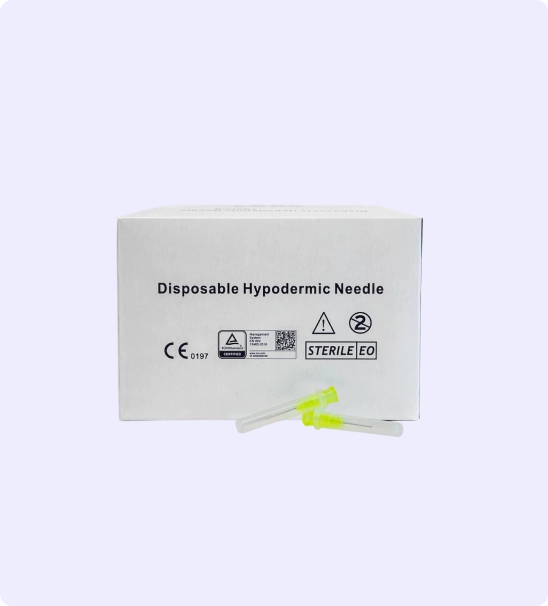
Safe and Responsible Alternatives
While the thought of making your own needles at home may seem exciting or rebellious, there are safe and responsible alternatives available. The best option is to obtain needles legally by getting a prescription from a doctor or through legitimate needle exchange programs.
With a prescription, you can purchase hypodermic needles at most pharmacies. Be aware that some larger gauge needles may have additional restrictions or require justification for medical use. But for routine injections, a prescription will allow you access to sterile needles from a licensed professional source.
Needle Exchange Programs
Needle exchange programs also distribute needles that have been properly sterilized for safe sharing and use. While controversial, these programs aim to prevent the spread of disease by providing clean needles. Many also offer additional resources for healthcare, testing services, and addiction treatment options.
Seeking Professional Medical Assistance
The most medically responsible choice, however, is to see a doctor or visit a clinic to receive any necessary injections under the care of licensed healthcare professionals. They have the proper sterile equipment, training, expertise and ethics to conduct procedures safely.
As a patient, you can trust that the equipment being used on you meets all standards for quality, cleanliness and sterilization. Complications or misuse are avoided, and your health is the top priority. Any injections received are also properly documented in your medical record for future reference and care coordination.
Rather than taking an unsafe DIY approach to hypodermic needles out of curiosity or rebelliousness, pursue the legal and responsible alternatives. Your health, safety, ethics and legal well-being will all be much better served by obtaining needles properly under medical supervision. Needle making should be left to the experts, and only you are the expert of you. Choosing options that you can trust will never put you at risk of harm.
Discover the benefits of Hydra Needles at Face Med Spa and unlock the secret to rejuvenated, glowing skin.
